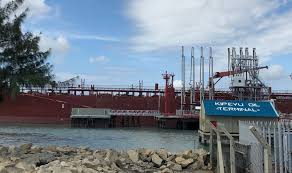Kenya has earned Sh247 million from the sale of crude oil extracted from Turkana County, but this achievement has been overshadowed by a serious disagreement over how the money should be shared among the national government, the county government, and the local communities in the oil-producing areas.
The revenue came from the Early Oil Pilot Scheme (EOPS), a project that involved transporting crude oil by road from Turkana in the north to the port city of Mombasa for export. While this was seen as a breakthrough for Kenya’s dream of joining the list of oil-producing nations, residents of the areas where the oil was drilled are not happy with how the money from the sale is being handled.
Leaders and members of the Community Land Management Committees (CLMCs) from Kapese, Lokichar, and Kasuroi communities have raised concerns. Aule Esikiria, who is the chairperson of Kapese CLMC, said their efforts to track how the money has been used have not yielded results. According to him, Tullow Oil, the company that was in charge of the project, claimed that the funds were used to pay taxes, levies, and land rates. But the local people say the money should directly benefit the communities that gave up their land for oil drilling.
The committees are now threatening to take the Turkana County Government and Tullow Oil to court. They say the Community Land Act of 2016 allows them to sue if the land rates and benefits due to them are not paid. Peter Ewesit, who is the chairperson of the Kasuroi CLMC, said the law is very clear about the roles of the committees, and the county government must do what is right by law.
Local residents also joined the call for justice. Veronica Lotesiro, a resident of Lokichar, said the county government should manage the funds on behalf of the people until the land committees are fully registered and able to handle the money directly. She also praised Turkana Governor, Jeremiah Lomorukai, for promising to ensure every cent is accounted for, but added that the community expects full transparency.
The Turkana Extractives Consortium, together with the CLMCs, has announced plans to go to court to seek interpretation of the law and clarification on who is supposed to get what from the oil revenue. Geoffrey Ariong, who is part of the consortium, said a legal decision will help clear the confusion and give everyone a clear direction.
Energy Cabinet Secretary, Davis Chirchir, had earlier explained that Kenya did not make a profit from the early oil project. He said the government still owes Tullow Oil about Sh3.08 billion because the project cost more money than it brought in. This adds another layer of complication to the whole issue.
According to the Petroleum Act of 2019, the oil revenue was supposed to be divided as follows: 75% for the national government, 20% for the county government, and 5% for the local community. But this was later changed after pressure from governors. The new formula gives 70% to the national government, 20% to the county, and 10% to the local community.
Now, with oil money already collected but disputes still lingering, the people of Turkana say they will not rest until justice is done. They want to see real benefits from the natural resources found in their land, and they want the laws to be respected. The coming court battle is expected to set the tone for how future oil money will be shared in Kenya.
